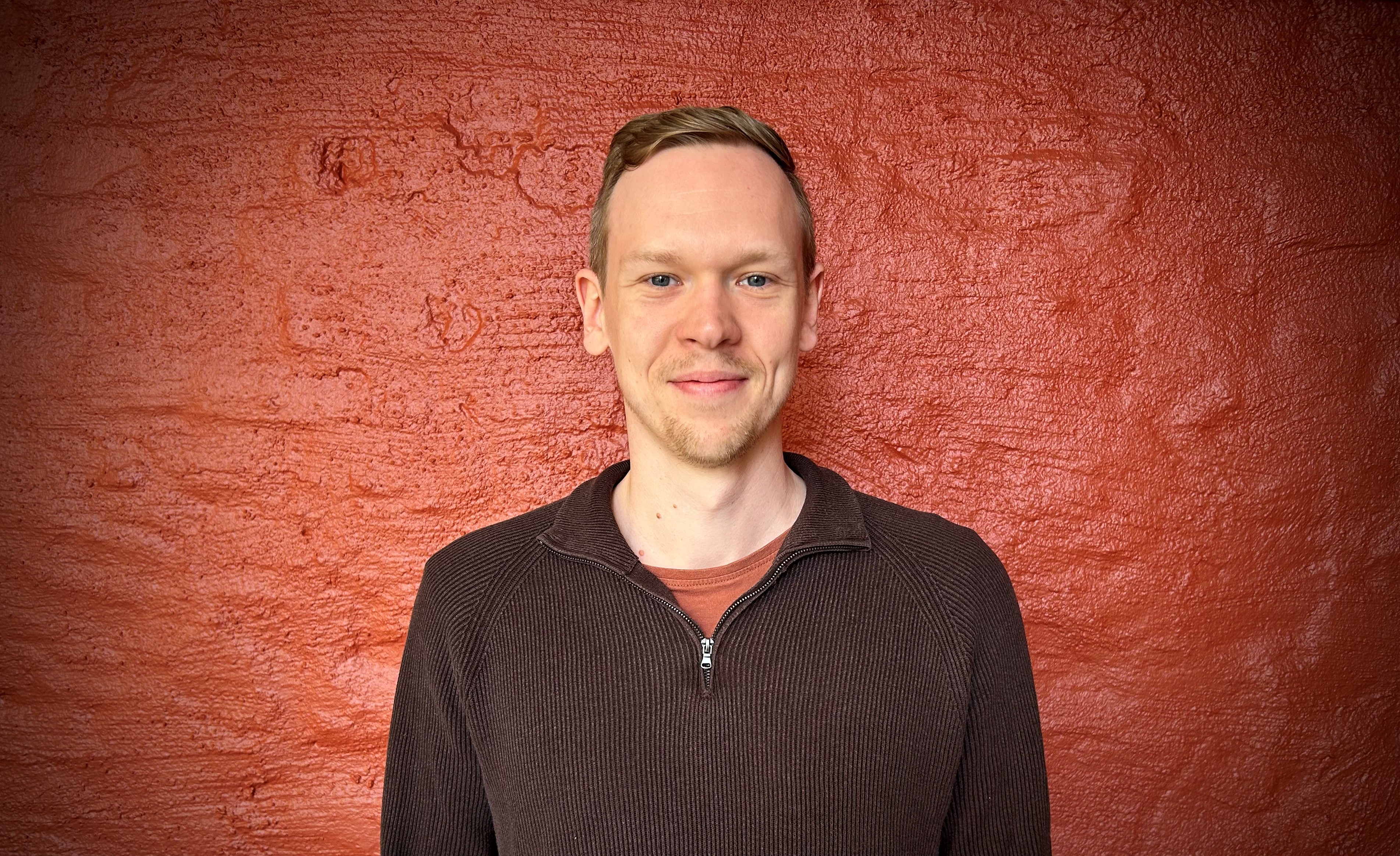
Filip Skärin, PhD student at the School of Engineering, Jönköping University.
"It's crazy — the machine graveyards must go!"
Vast amounts of functioning production equipment are sitting unused at industrial companies that choose to buy new to keep up with the rapid development.
—We have to build machines that meet both today's and future needs, says PhD student Filip Skärin.
These are almost cinematic images that Filip Skärin paints when we meet at JTH, but he has seen them himself: the "machine graveyards" — equipment that was recently working full-time on a production line in an industry but was suddenly abandoned and now stands gathering dust at the company.
—The introduction of new products is happening so quickly that new equipment is being bought to keep up with production. The companies themselves don't know how much wasted machinery has been sitting there for ten years and has fallen into disrepair — it's a crazy waste of resources that we have to do something about, he says. In the same way that a product can be designed and produced for increased circularity, a machine or production line can be built up so that it works longer, under new conditions, explains Filip Skärin.
—You could call it the LEGO-principle where you can move and replace parts instead of locking yourself in from the beginning. It's not a technical complexity, but like society at large, it requires a behavioral change — we have to stop buying, using and throwing away.
Passionate about climate-friendly industry
Filip Skärin has spent about ten years at Jönköping University. He studied logistics and management before continuing with Production Engineering and Management. He is now a doctoral student in the JTH project Refuse and is also involved in GRACE through the project Provalue. After his dissertation this fall, Filip Skärin hopes to get even closer to GRACE through his own research funds that newly defended researchers have the opportunity to apply for.
—I am passionate about ensuring that Swedish industry reduces its climate emissions. My interest in the issues probably comes from reading, which is one of my great interests. I have read a lot about climate issues. In addition, my uncle has been very involved in environmental issues as a local politician and that has left its mark. Sweden should be at the forefront, not least as a good example, he says enthusiastically.
Uncertainty speaks in favor of the LEGO-principle
A clear example of production that must be able to change quickly is that in the automotive industry, which Filip Skärin works with in his research. It is an industry that is grappling with what type of operation and engines will make a big impact on a broad front. Will it be electricity, gas or a return to diesel. Or something completely different?
—They have to adapt and where it goes affects which machines are needed. This benefits our philosophy — not to lock yourself into a machine but to open up and prepare to be able to rebuild.
Part of Filip Skärin's work is about the requirements when companies buy equipment.
—Which alternatives are best for the entire life cycle? It's important to set the right requirements and not lock yourself in and then scrap. We're talking about a lot of money with procurement and installation, in addition to the cost to the environment.
Filip Skärin says that figures will be required to support change, and he hopes to be able to produce such figures in his research at JTH.
— Swedish companies are talented, but much more is needed. If we can come up with good cases and show good solutions, more people will start to act.
FACTS Filip Skärin
Age: 31 years old
Lives: In Jönköping but is from Värnamo
Family: Cohabiting
Leisure interests: Recently bought a house so there is a lot of renovation and gardening. Likes to read, preferably philosophy and biopics about rock stars. (Filip also collects vinyl records)
Works in GRACE: Part of the Provalue project and hopes to be able to connect with his own research via the KK-stiftelsen program Prospekt, which highlights recently graduated researchers in interaction with the business community


